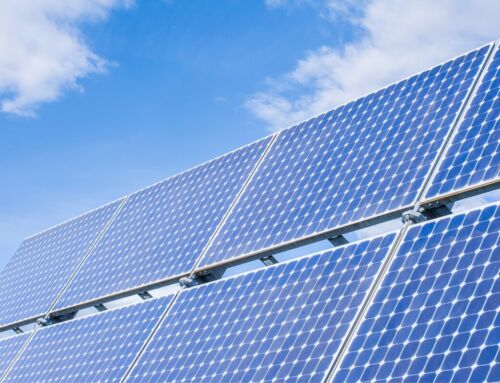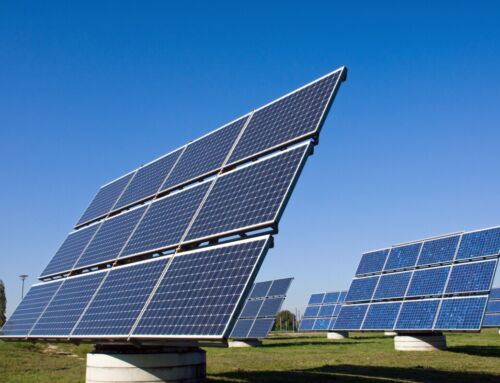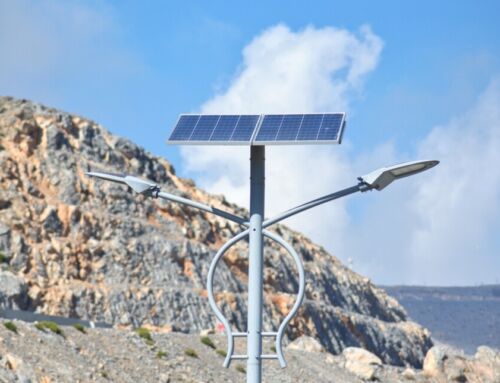The Bright Side: Exploring the Advantages of Solar Energy
Solar energy shines as a superhero in the power world, offering a clean and renewable way to help save our planet. Understanding solar energy advantages and disadvantages is essential for anyone considering this green option. Let’s explore why solar power might be the right choice for you!
Advantages of Solar Energy
- Renewable Resource: Solar energy is limitless, unlike fossil fuels, providing more energy daily than we could ever use.
- Environmentally Friendly: It doesn’t pollute the air or water, making it a clean energy choice.
- Reduces Electricity Bills: Solar panels can significantly lower electricity costs over time.
Disadvantages of Solar Energy
- Weather Dependent: Solar panels need sunlight, so cloudy days can affect efficiency.
- High Initial Costs: Installation can be pricey, though costs are decreasing.
- Space Requirements: Panels need space, which might be challenging for some locations.
In summary, despite some challenges, solar energy offers significant benefits, making it a bright choice for a sustainable future. By weighing the solar energy advantages and disadvantages, you can decide if it’s the right fit for you.
What Are the Downsides? Understanding Solar Energy Disadvantages
Solar energy paints a picture of a cleaner, greener world, but it comes with its own set of challenges. Recognizing solar energy advantages and disadvantages is crucial for making smart energy choices.
Initial Costs and Installation
The high initial
cost of solar panels and installation can be a barrier for many. Yet, with government incentives and falling prices, solar energy is becoming more affordable.
Weather Dependency
Solar panels rely on sunlight, so their efficiency decreases on cloudy or rainy days. This makes them less reliable in areas with limited sunshine.
Space Requirements
Solar panels need ample space to produce significant power, posing a challenge for those with limited roof space or living in apartments. Large solar farms also require vast areas, which might not always be feasible.
Despite these downsides, solar energy’s benefits, like reducing carbon footprints and cutting electricity costs, often outweigh the negatives. By weighing both sides, we can better understand solar energy’s role in our future.
How Does Solar Energy Impact Your Wallet?
Curious about how solar energy might affect your finances? Understanding the
solar energy advantages and disadvantages is crucial for making smart energy choices. Solar power can significantly impact your wallet, offering both savings and challenges.
Advantages of Solar Energy
- Savings on Electricity Bills: Solar energy can help you save on electricity bills by allowing you to generate your own power, potentially reducing or eliminating monthly costs.
- Tax Incentives: Governments often provide tax credits and incentives to promote solar energy use, which can lower the initial investment cost.
Disadvantages of Solar Energy
- High Initial Costs: The upfront cost of installing solar panels can be high, despite decreasing prices over time, posing a barrier for some families.
- Weather Dependency: Solar panels depend on sunlight, so their efficiency may decrease on cloudy days or during winter.
By considering these
solar energy advantages and disadvantages, you can determine if solar power suits your home and budget. Although the initial costs may seem daunting, the potential for long-term savings and environmental benefits could make it a wise investment.
Is Solar Energy Truly Sustainable? A Deep Dive into Environmental Effects
Solar energy is often hailed as a clean, green solution to our energy needs, but is it truly sustainable? Understanding the
solar energy advantages and disadvantages can help us make informed decisions about its role in our future. Let’s explore this fascinating topic together.
Solar Energy Advantages
- Renewable Resource: Solar energy is abundant and won’t run out, unlike fossil fuels.
- Reduces Carbon Footprint: Using solar panels decreases greenhouse gas emissions, helping combat climate change.
- Low Operating Costs: Once installed, solar panels require minimal maintenance and have low operating costs.
Solar Energy Disadvantages
- High Initial Costs: Installing solar panels can be expensive, though prices are decreasing.
- Weather Dependent: Solar energy production varies with weather conditions, affecting reliability.
- Space Requirements: Large areas are needed for solar farms, which can impact land use.
In conclusion, while solar energy offers numerous benefits, it’s essential to weigh these against the drawbacks. By understanding the
solar energy advantages and disadvantages, we can better appreciate its potential and limitations. As technology advances, solar energy may become an even more sustainable option for our planet.
Can Solar Energy Power Your Entire Home?
Imagine the sun powering your entire home each day. Sounds amazing, right? Before embracing this sunny dream, it’s crucial to understand the
solar energy advantages and disadvantages. This knowledge helps you decide if solar energy suits your home.
Advantages of Solar Energy
- Renewable Resource: Solar energy is abundant and won’t run out.
- Reduces Electricity Bills: Solar panels can significantly cut electricity costs.
- Environmentally Friendly: Solar energy is a clean energy source.
Disadvantages of Solar Energy
- High Initial Costs: Installing solar panels can be expensive.
- Weather Dependent: Cloudy days can reduce solar panel efficiency.
- Space Requirement: Adequate roof space is needed for installation.
By considering these
solar energy advantages and disadvantages, you can determine if harnessing solar power is the right choice for your household. Transitioning to solar energy might seem like a big step, but with the right information, it can be a bright choice for the future.

Ready to take the next step? Discover how solar energy can elevate your home and reduce those energy bills. Request a Free Solar Estimate at NEW SOLAR QUOTE
The Future of Solar Energy: What Innovations Are on the Horizon?
Solar energy is gaining popularity as people seek cleaner, greener power solutions. Understanding the
solar energy advantages and disadvantages is essential for a sustainable future. Solar power isn’t just about environmental benefits; it’s about innovation and transforming daily life.
Solar energy is rapidly evolving with promising innovations that enhance efficiency and accessibility. However, it’s important to weigh both the
advantages and disadvantages.
Advantages of Solar Energy
- Renewable Resource: Solar energy is abundant and inexhaustible.
- Reduces Electricity Bills: Solar panels can significantly lower energy costs once installed.
- Low Maintenance: Solar systems require minimal upkeep, offering convenience.
Disadvantages of Solar Energy
- Weather Dependent: Solar panels rely on sunlight, so cloudy days can reduce energy output.
- High Initial Costs: The upfront expense of solar panels can be high, though prices are falling.
- Space Requirements: Solar panels need space, which can be challenging for some homes.
As technology advances, the
advantages of solar energy are expected to increase, while the
disadvantages may decrease. Innovations like efficient solar cells and improved storage solutions make the future of solar energy bright, offering exciting possibilities for transforming our world.
How Does Solar Energy Compare to Other Renewable Sources?
Solar energy is gaining attention as a sustainable power source, and understanding its advantages and disadvantages helps us compare it to other renewables like wind and hydro. Solar energy is abundant and renewable, harnessing the sun’s limitless power without depleting resources. It’s environmentally friendly, producing clean energy without air or water pollution. Additionally, solar panels have low operating costs, requiring minimal maintenance and no fuel, which reduces energy bills.
However, solar energy has its drawbacks. It’s weather dependent, meaning cloudy days can decrease efficiency. The initial installation costs can be high, although they are gradually decreasing. Moreover, solar panels require significant space to capture enough sunlight, which can be challenging in densely populated areas.
Despite these challenges, solar energy presents a promising future. By weighing its pros and cons, we can make informed decisions about integrating solar power into our energy mix, ensuring a cleaner and more sustainable world.
Are There Hidden Costs in Solar Energy Adoption?
When considering solar energy, it’s important to weigh the
solar energy advantages and disadvantages. Solar power is a popular choice for many, but are there hidden costs that might surprise you? Let’s explore this topic to understand the full picture.
Advantages of Solar Energy
- Environmentally Friendly: Solar energy is clean and renewable, reducing our carbon footprint.
- Cost Savings: Over time, solar panels can significantly lower electricity bills.
- Energy Independence: With solar power, you rely less on the grid, gaining more control over your energy needs.
Disadvantages of Solar Energy
- Initial Costs: The upfront cost of solar panels and installation can be high.
- Weather Dependent: Solar energy production can be affected by cloudy days.
- Space Requirement: Solar panels need ample space, which might not be available for everyone.
While the
solar energy advantages and disadvantages are clear, understanding these hidden costs can help you make an informed decision. Transitioning to solar energy is a big step, but knowing what to expect can make the journey smoother.
How NewSolarQuote Can Help You Navigate Solar Energy Choices
Solar energy is a hot topic these days, and for good reason. Understanding the
solar energy advantages and disadvantages can help you make informed decisions. At NewSolarQuote, we’re here to guide you through the maze of solar options, ensuring you harness the sun’s power wisely.
Advantages of Solar Energy
- Eco-Friendly: Solar energy is clean and renewable, reducing your carbon footprint.
- Cost Savings: Once installed, solar panels can significantly lower your electricity bills.
- Energy Independence: Generate your own power and reduce reliance on the grid.
Disadvantages of Solar Energy
- Initial Costs: The upfront investment can be high, though prices are decreasing.
- Weather Dependent: Solar panels need sunlight, so cloudy days can affect energy production.
- Space Requirements: You need enough roof or land space to install the panels.
NewSolarQuote simplifies the process of weighing these pros and cons. We provide expert advice and resources, making it easier for you to decide if solar energy is right for your home. With our help, you can confidently step into a brighter, greener future.
Switch to solar and start saving now! Don’t miss out on a cleaner, cost-effective energy solution. Schedule Your Free Consultation at NewSolar Quotes
Discover more ways to save with solar! Visit New Solar Quote and see the potential for your home. 





